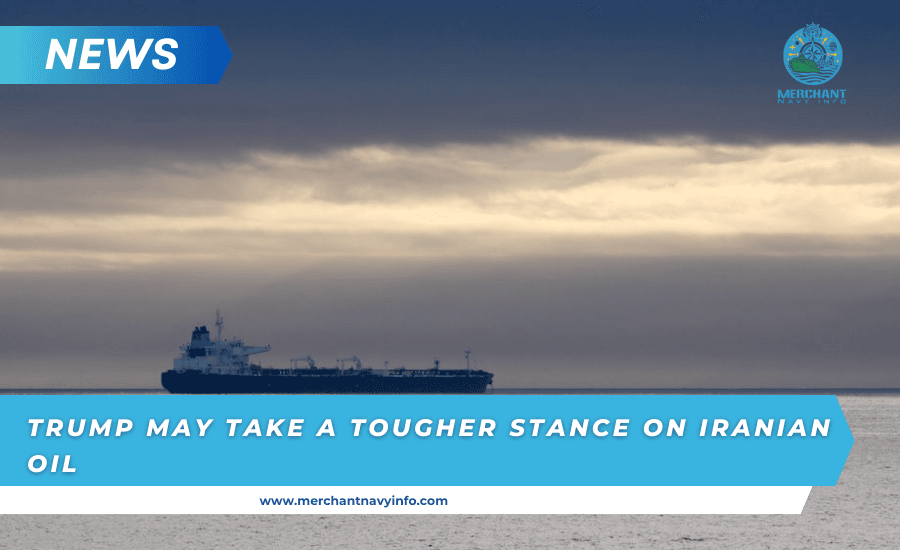
Trump May Take A Tougher Stance On Iranian Oil, But That Would Increase China’s Anger
According to analysts, former President Donald Trump’s return to the White House could mean tougher U.S. oil sanctions on Iran, reducing global supply and bringing geopolitical risks, including growing anger from its main customer, China.
A crackdown on OPEC member Iran would support global oil prices. Still, its impact could also be offset by other Trump policies, from expanding domestic drilling operations to tariffs on China, which could lead to lower economic activity, or easing relations with Russia, which could lead to the release of sanctions on its crude shipments.
“Trump has two choices on oil prices,” said Clay Siegel, a board member and chairman of the finance committee at the Council on Foreign Relations in Houston.
Iranian crude exports are set to rise to their highest level in 2024 as Iran finds ways to circumvent punitive sanctions targeting its revenues. Trump reimposed sanctions during his first presidency after the United States unilaterally withdrew from the West’s nuclear deal with Tehran in 2018.
Trump, a Republican, said during his campaign that President Joe Biden’s policy of not imposing tough sanctions on oil exports weakened Washington and emboldened Tehran, allowing it to sell oil, hoard funds, and expand its nuclear activities and influence through armed militias.
Jesse Jones, director of North American exploration and production at Energy Aspects, said a resumption of the Trump administration’s maximum pressure campaign on Iran could result in a 1 million barrel per day reduction in Iranian crude exports.
“This could be done relatively quickly, without additional legislation, just by enforcing the sanctions that are already in place,” he said.
Research group ClearView Energy Partners estimates that between 500,000 and 900,000 barrels of oil could be removed daily from the market.
‘Million-dollar question’. But taking a tougher stance on Iran also means taking tough action against China, which does not recognize U.S. sanctions and is the Islamic Republic’s largest oil consumer.
“The big question is how much financial pressure they want to put on Chinese financial institutions,” said Richard Nefie, a Columbia University professor and former deputy U.S. envoy for Iran.
Nefi said China could retaliate by strengthening the work of the BRICS club of emerging economies, which includes Brazil, Russia, India, China, South Africa and others, including reducing reliance on the dollar for trading in oil and other commodities.
Last September, Trump spoke at the Economic Club of New York about the dangers sanctions could pose to the dollar’s dominance.
“I’m a user of sanctions, but I’m applying them and removing them as quickly as possible because ultimately they kill your dollar and kill everything the dollar represents,” Trump said at the time.
“That’s why I take very tough sanctions on countries that deserve them and then I remove them because you’re losing Iran,” he added, “you’re losing Russia.”
Siegel said tough measures against Iran could positively impact oil prices. But the impact would likely be modest, especially if Trump follows through on his campaign promise to impose sweeping tariffs on U.S. imports to protect domestic manufacturing, including a 60% tariff on anything from China.
“A trade war that reduces GDP will reduce demand for oil and cause prices to fall,” Siegel said.
Trump may also ease sanctions on Russia’s energy industry that were imposed by Western countries to punish Russia for its invasion of Ukraine, said Ed Hertz, an energy researcher at the University of Houston. Trump promised during his campaign that the Ukraine war would be “resolved” before he takes office in January.
“I expect Trump to ease all sanctioTrump May Take A Tougher Stance On Iranian Oil, But That Would Increase China’s Angerns on Russian oil,” Hertz said.
Western sanctions on Russian oil are not intended to stop its flow but to limit Russian export revenues from sales through Western shipping services to no more than $60 a barrel. The sanctions shifted the market for Russian oil from Europe to China and India, increasing Russia’s costs.









